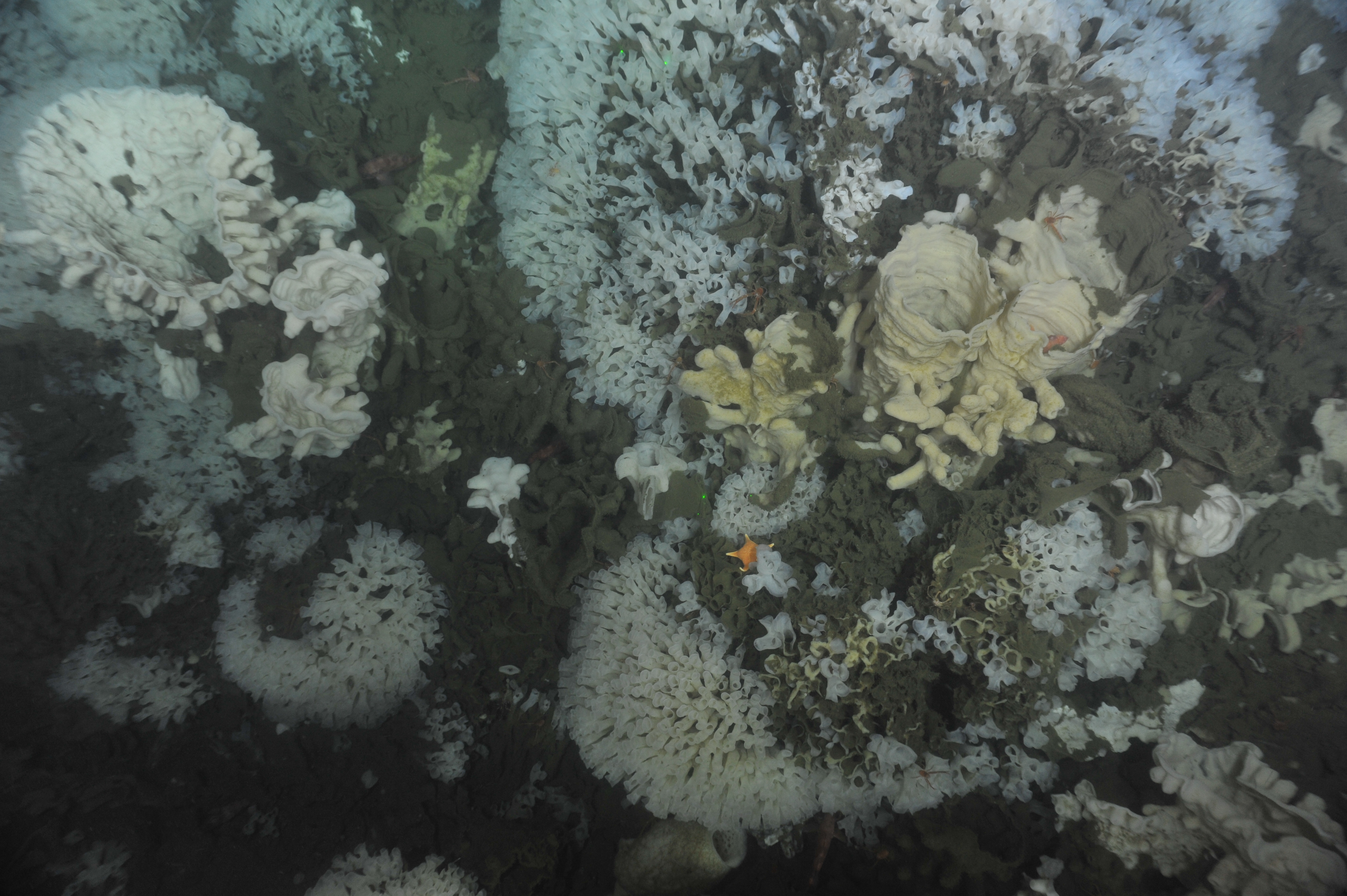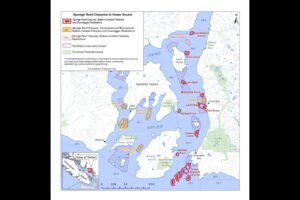
Flouting rules for recreational fishing can result in environmental damage, judge says. Read more

A map shows areas of Howe Sound closed to bottom fishing to protect glass sponge reefs.
The money will go towards projects aimed at documenting and protecting species at risk and environmentally sensitive areas in the Howe Sound region. Read more
Despite protections, divers say they continue to find new damage to otherworldly creatures. Read more.
Fisheries officers caught a man with prawn traps in an area closed to fishing to protect reef-building glass sponges. Canada has international agreements to protect this underwater species. Read more
As conservationists and researchers celebrate the announcement of new protections for five more glass sponge reefs in Howe Sound, several societies, including CPAWS-BC, are also calling for more enforcement in the fragile habitat areas.
The Canadian Parks and Wilderness Society – British Columbia (CPAWS-BC) is pleased to see five new protections announced for glass sponge reefs in Átl’ka7tsem/Howe Sound. These new fishing closures prohibit bottom contact fishing such as trawling and prawn trapping from destroying these rare and ancient ecosystems.
Unceded Coast Salish Territory/Vancouver, BC — A new report from Ocean Wise has updated the health status of Howe Sound for 2020. While there is cautious optimism with some health ratings improving, the Ocean Wise report still has many labelled as critical or cautious, including glass sponge reefs which “remain vulnerable to mechanical damage and climate change.” The report recommends implementing full protection of glass sponge reefs throughout all of Howe Sound.
Long thought extinct, glass sponge reefs mainly grow off BC’s coast. Not only do these reefs provide important habitat for ocean life such as prawns and rockfish, they also filter ocean water, provide fertilizer for plankton, and store carbon.
Glass sponge reefs are particularly vulnerable to shattering from bottom contact fishing such as prawn traps as they are composed of the same material that makes glass. A DFO survey, in cooperation with the Marine Life Sanctuaries Society, not only discovered a dead reef near Ellesmere Creek at the north end of Howe Sound, but found historical damage from fishing activities in all of the surveyed reefs.
Read MoreConservationists are calling for greater protection of some endangered but important glass sponge reefs on the floor of Howe Sound after new scientific research shows the existing rules may not be adequate.